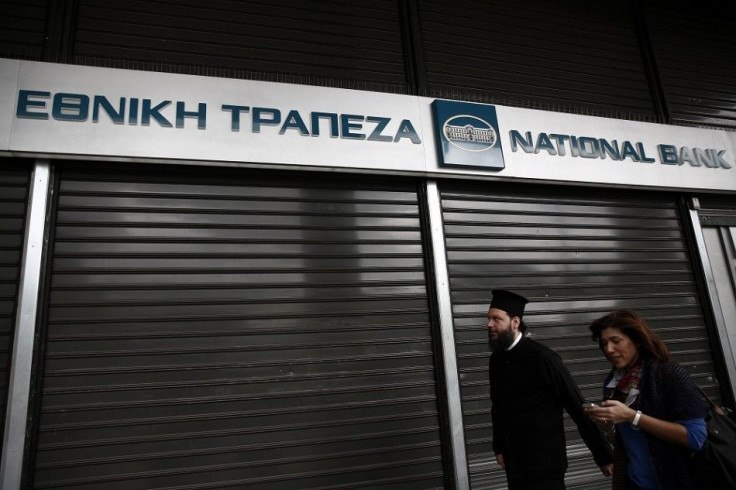Greek Crisis: US Seeks More Accommodation From European Union

The United States has increased its attention to the Greek crisis and urged both European Union and the International Monetary Fund to come up with a recovery plan to keep Greece within the euro zone. In separate calls to IMF Managing Director Christine Lagarde and finance ministers of Germany and France, U.S. Treasury Secretary Jack Lew urged all to "find a sustainable solution that puts Greece on a path toward reform and recovery within the Eurozone," Treasury Department said in a statement. Lew also called Greece to adopt "difficult measures to reach a pragmatic compromise with its creditors."
Lew noted that it is "important for all parties to continue to work to reach a solution, including a discussion of potential debt relief for Greece.” Greece will be holding a referendum on July 5 to decide on the terms of a bailout. Greece has a June 30 deadline to pay 1.6 billion euro to the IMF. The actions of Greece such as capital controls and shutting of banks created jitters after international creditors refused to extend the country's bailout. The Greeks have been draining their deposits for weeks after the breakdown of talks that led the European Central Bank to freeze emergency loans to banks and enforced curbs on amounts that citizens can take out at just $66 a day.
Tsipras Contacted
The Treasury spokesperson said senior department officials are in regular touch with Greece and Lew spoke to Prime Minister Alexis Tsipras "multiple times" in the past two weeks. The treasury wanted Greece to work closely with its international partners on matters like bank holiday and capital controls.
President Barack Obama also spoke with German Chancellor Angela Merkel about the Greek situation. The two leaders agreed that it was important to show a path that will allow Greece to “resume reforms and growth within the Eurozone," a White House statement said.
Impact on US
Federal Reserve Chair Janet Yellen made a cautious remark on the possible impact of the Greece turmoil for the United States. “I do see the potential for disruptions that could affect the European economic outlook and global financial markets. To the extent that there are impacts on the euro-area economy or on global financial markets, there would undoubtedly be spillovers to the United States that would affect our outlook as well," she said.
The Greece-effect was more palpable in Global markets, with most of them diving Monday morning, as Greece started closing banks and appeared to to be missing a critical debt payment, hinting a default that might lead to the country's exit from the euro zone. The relief in the US is that it has very small exposure to Greece, whose economy is in the size of its Connecticut and accounts for less than one percent of all US trade, that too in vegetables.
(For feedback/comments, contact the writer at k.kumar@ibtimes.com.au)






